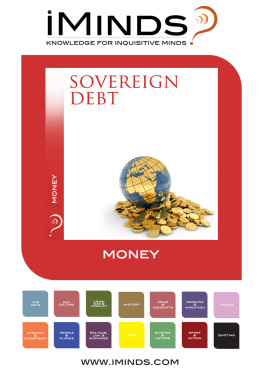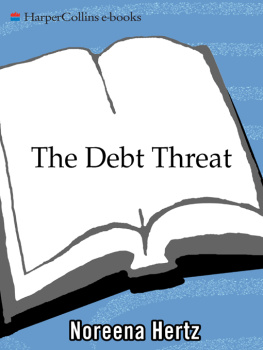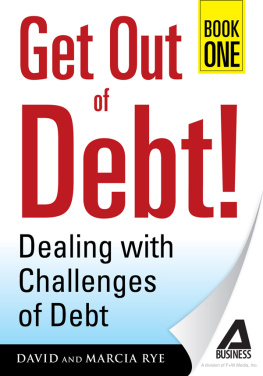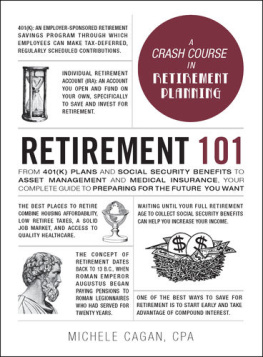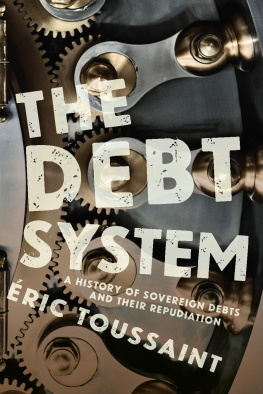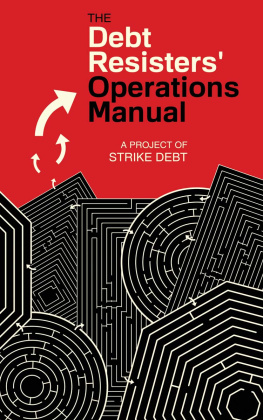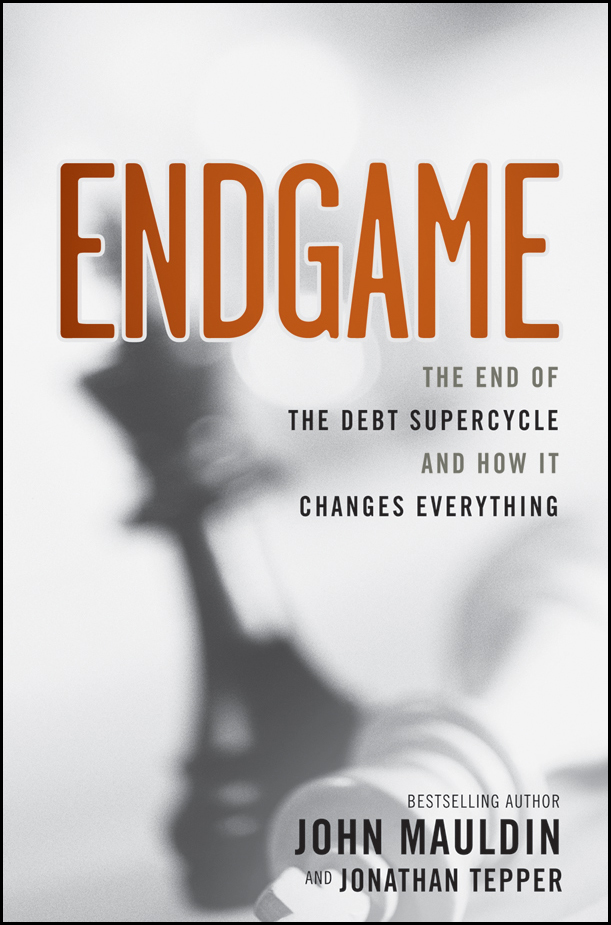Contents
Additional Praise for Endgame
Theres clearly something important going on in the world economy. Something big. Something powerful and dangerous. But something as yet undefined and uncertain. We are all feeling our way around in the dark, trying to figure out what it is. John Mauldin must have night-vision glasses. He does an excellent job of seeing the obstacles. You should read this book before you knock over a lamp and stumble over the furniture.
William Bonner, President and CEO of Agora Inc.; author of Dice Have No Memory and Empire of Debt
Endgame not only is a highly readable and informative account of the causes of the recent global economic and financial meltdown, but it also provides investors with a concrete investment strategy from which they can benefit while this final act in financial history is being played out.
Marc Faber, Managing Director, Marc Faber, Ltd.; Editor , Gloom Boom & Doom Report
I think the book is brilliant. It is well written, crystal clear, and hits the spot. My favorite chapters are the ones on fingers of instability (which I think everyone in finance should read and reread each year lest they forget), and the one on Eastern Europe as both a leading indicator for whats in store and a potential land mine that could yet do for the euro what Credit Anstaldt did for the gold standard. But its a tough call. Lots of very good stuff in here.
Dylan Grice, Global Strategy Team, Societe Generale

Copyright 2011 by John Mauldin and Jonathan Tepper. All rights reserved.
Published by John Wiley & Sons, Inc., Hoboken, New Jersey.
Published simultaneously in Canada.
No part of this publication may be reproduced, stored in a retrieval system, or transmitted in any form or by any means, electronic, mechanical, photocopying, recording, scanning, or otherwise, except as permitted under Section 107 or 108 of the 1976 United States Copyright Act, without either the prior written permission of the Publisher, or authorization through payment of the appropriate per-copy fee to the Copyright Clearance Center, Inc., 222 Rosewood Drive, Danvers, MA 01923, (978) 750-8400, fax (978) 646-8600, or on the Web at www.copyright.com . Requests to the Publisher for permission should be addressed to the Permissions Department, John Wiley & Sons, Inc., 111 River Street, Hoboken, NJ 07030, (201) 748-6011, fax (201) 748-6008, or online at www.wiley.com/go/permission .
Limit of Liability/Disclaimer of Warranty: While the publisher and author have used their best efforts in preparing this book, they make no representations or warranties with respect to the accuracy or completeness of the contents of this book and specifically disclaim any implied warranties of merchantability or fitness for a particular purpose. No warranty may be created or extended by sales representatives or written sales materials. The advice and strategies contained herein may not be suitable for your situation. You should consult with a professional where appropriate. Neither the publisher nor author shall be liable for any loss of profit or any other commercial damages, including but not limited to special, incidental, consequential, or other damages.
For general information on our other products and services or for technical support, please contact our Customer Care Department within the United States at (800) 762-2974, outside the United States at (317) 572-3993 or fax (317) 572-4002.
Wiley also publishes its books in a variety of electronic formats. Some content that appears in print may not be available in electronic formats. For more information about Wiley products, visit our web site at www.wiley.com .
Library of Congress Cataloging-in-Publication Data:
Mauldin, John.
Endgame : the end of the debt supercycle and how it changes everything / John Mauldin and Jonathan Tepper.
p. cm.
Includes index.
ISBN 978-1-118-00457-9 (hardback); ISBN 978-1-118-05806-0 (ebk.);
ISBN 978-1-118-05807-7 (ebk.); ISBN 978-1-118-05808-4 (ebk.)
1. Debt. 2. Debts, Public. 3. Debts, External. 4. Recessions. 5. Business cycles. I. Tepper, Jonathan, 1976 II. Title.
HG3701.M345 2011
336.3'4dc
222010051231
This book is dedicated to Peter Bernstein.
Peter Bernstein 19192009
Amazing author, devoted husband, loving father
Mentor to generations of investment professionals
A man whose wisdom was always welcome
And who saw The Endgame clearly before everyone
You are missed, my friend, now more than ever when your wisdom is most sorely needed.
In order to improve your game, you must study the endgame before everything else, for whereas the endings can be studied and mastered by themselves, the middle game and the opening must be studied in relation to the endgame.
Jose Raul Capablanca, Cuban chess player who was world chess champion from 1921 to 1927 and one of the greatest players of all time
Acknowledgments
We would like to thank our many reviewers and readers. We have had a lot of feedback from reviewers, which has really helped. Martin Barnes of Bank Credit Analyst was particularly vicious, but he really made us do a lot more homework and think through some of our points. Andrew Wynn, Dylan Grice, and Albert Edwards provided very valuable critiques and insight. Lacy Hunt was particularly helpful in his suggestions and criticisms of our deflation and hyperinflation chapters. Simon White at Variant Perception was invaluable in helping draft some of the chapters on the United Kingdom, Eastern Europe, and Australia, and he helped produce most of the charts in the book. Debra Englander and Kelly OConnor at John Wiley & Sons helped shepherd this book from its original idea to publication. Claus Vistesen and Edward Hugh offered valuable critiques, saw many of the crises before they happened, and have provided valuable insights into demographics.
INTRODUCTION
Endgame
People only accept change in necessity and see necessity only in crisis.
Jean Monnet
Every child learns about the Great Depression in school, but economists, historians, and commentators have not agreed on what we will call the turbulent economic period we are currently living in. Some do call it a depression. Others call it the Great Recession. And some refer to it as the Great Financial Crisis. The Great Financial Crisis is particularly apt, because crises force us to make difficult choices. And one thing that everyone can agree on is that this new era of turbulence will impose difficult choices on governments and voters around the world.
I (John) am somewhat of an expert on bad choicesnot only my own, but I have had the joys of seven teenage children. As our family grew, we limited the choices our kids could make, but as they grew into teenagers, they were given more leeway. Not all of their choices were good. How many times did Dad say, What were you thinking? and get a mute reply or a mumbled I dont know.
Yet how else do you teach them that bad choices have bad consequences? You can lecture, you can be a role model, but in the end you have to let them make their own choices. And a lot of them make a lot of bad choices. After having raised six, with one more teenage son at home, I have come to the conclusion that you just breathe a sigh of relief if they grow up and have avoided fatal, life-altering choices. I am lucky. So far. Knock on a lot of wood.
I have watched good kids from good families make bad choices, and kids with no seeming chance make good choices. But one thing I have observed: Very few teenagers make the hard choice without some outside encouragement or help in understanding the known consequences, from some source. They nearly always opt for the choice that involves the most fun and/or the least immediate pain and then learn later that they now have to make yet another choice as a consequence of the original one. And thus they grow up. So quickly.


